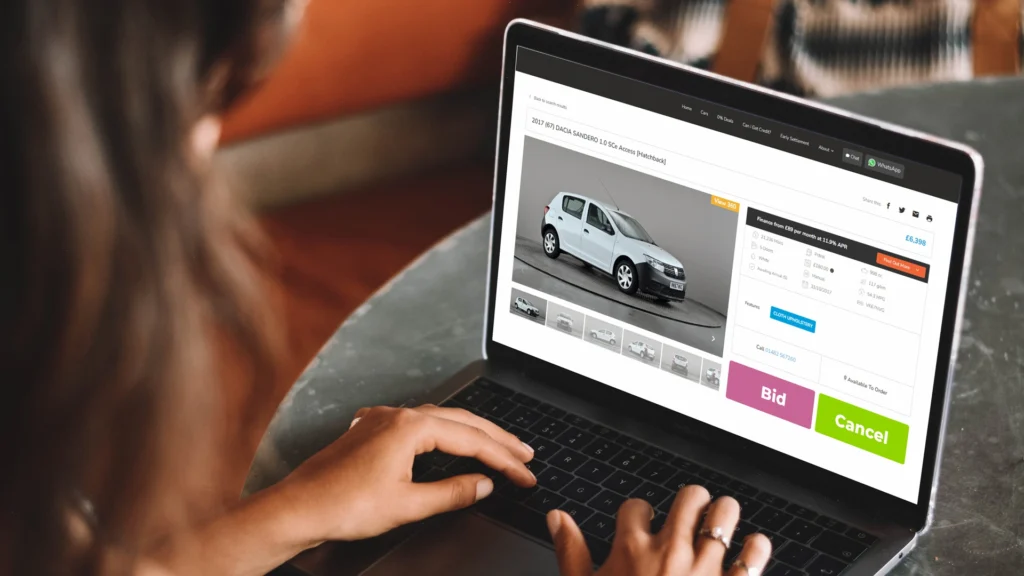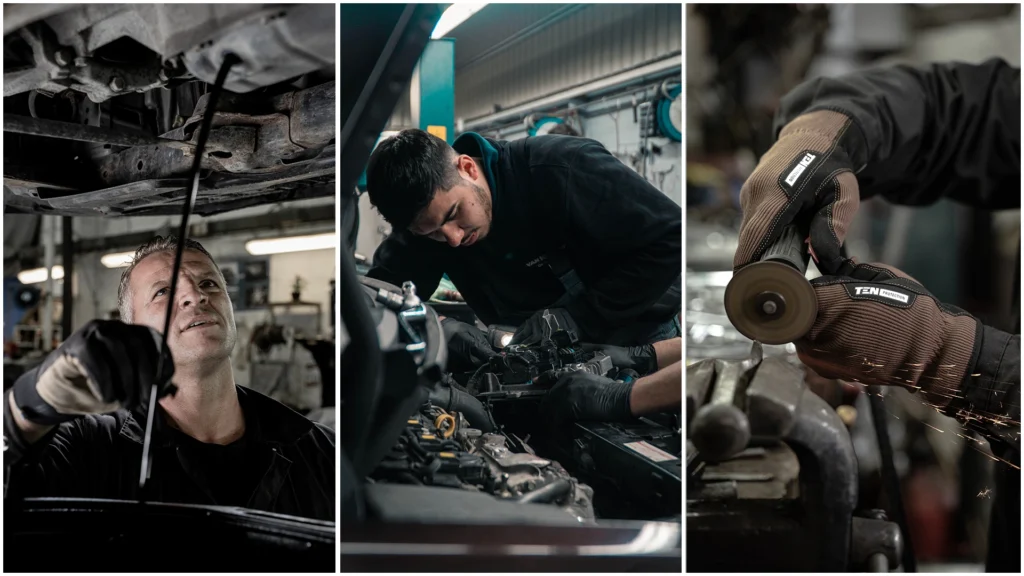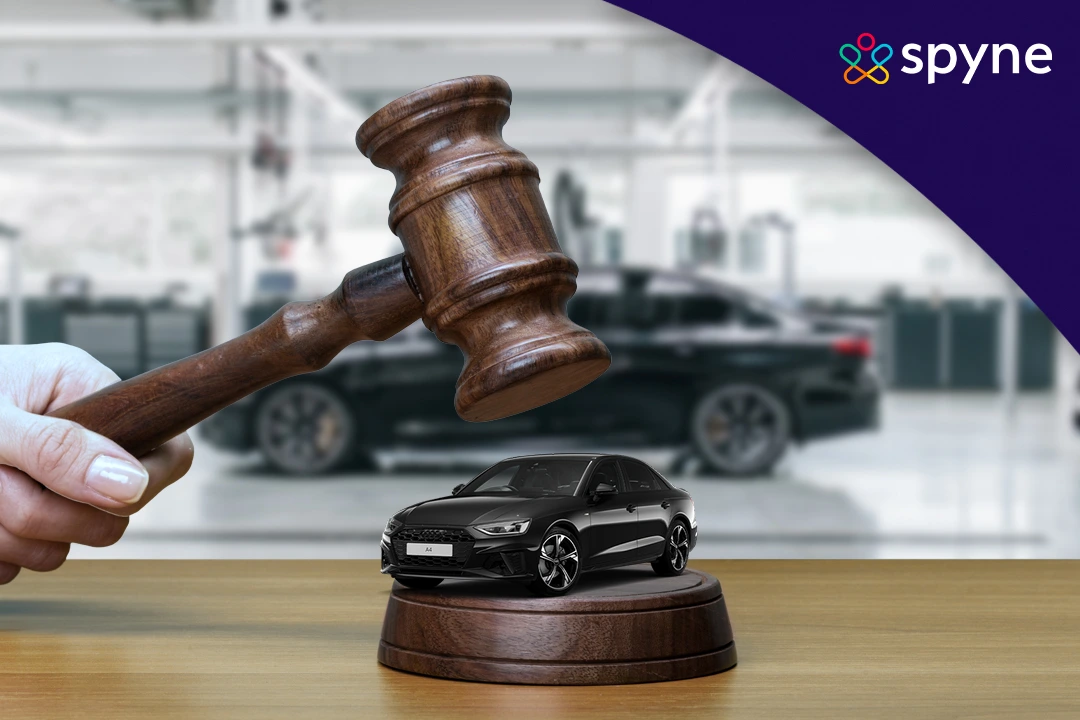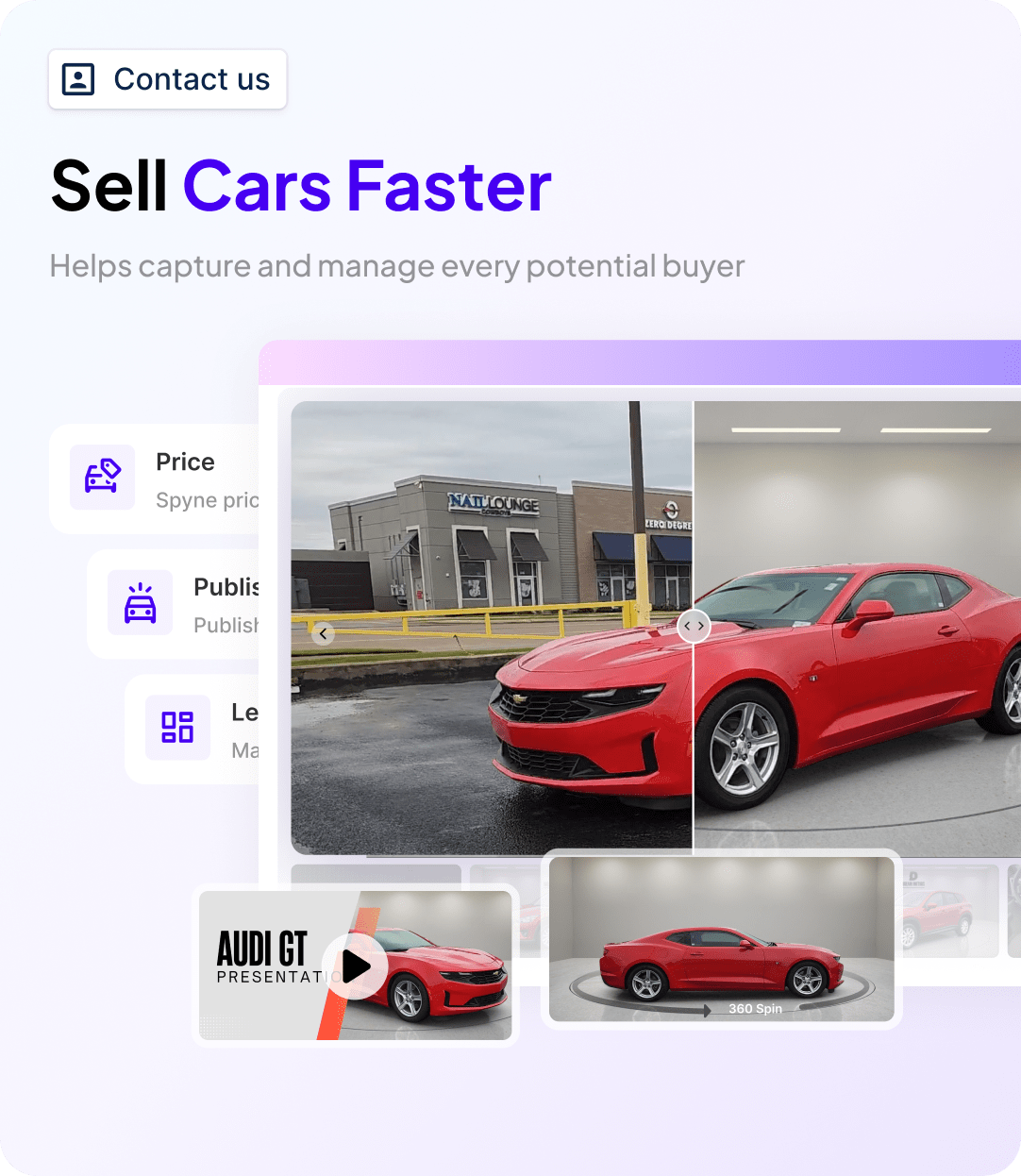Every day, things are sold and bought. This has been happening for ages, and a particular event is organized where interested car buyers come together to bid and buy vehicles they are interested in. Therefore, this event, organized in various locations, is known as a car auction. Furthermore, these auctions serve as a platform for individuals to do their car bidding. Additionally, auto auctions provide many used vehicles and often offer a thrilling experience. Whether you’re a car lover, a budget-conscious shopper, or someone looking to trade in a vehicle, this blog will provide an in-depth analysis of an intriguing world of opportunity and intrigue in the automotive industry.
What is a Car Auction?
A car auction, also known as an auto auction, is a method to sell cars based on the auction system used by most residents. Furthermore, vehicle auctions are held in most countries around the world. Automotive auctions offer a diverse range of vehicles, spanning different brands, models, and conditions, all sold to the highest bidders. Therefore, it can be held at a physical location, online, or both. An automotive auction is usually exclusive and is organized by licensed automotive dealerships.
How Does a Car Auction Work?
Used car dealership follows a straightforward auction system when organizing an auto auction. Some auctions are held indoors and almost are held outside. A ring man is responsible for detecting bidders for each row of cars arranged. You bid on a particular item. If you bid the highest offer or price, you win and must go to a counter to pay. Within ten days, you will receive the title if the car is from an individual or company. The bankruptcy court will give titles of vehicles that are part of the bankruptcy auction.
Different Types of Old Car Auctions
The world of auto auctions has been transformed. Now, it can be done not just physically but also virtually. There are many vehicle auction websites where cars can be quickly auctioned. With that, automotive auctions have been categorized into two:
1) Closed or private auctions: Closed auctions are like private clubs and are often on an invitation basis. They are reserved for a select group of sellers and buyers, and members can participate in buying and selling.
2) Open or public vehicle auctions: Open auctions are public events anyone can attend. There might be a small entry or registration fee.
These two categories have been further broadened:
1) Dealer auto auction
A car dealer auction is an exclusive, industry-focused auction where automotive dealerships and other professionals in the field procure vehicles for their inventories. These auctions are usually restricted to industry participants. Still, if you have connections within the automotive sector, there’s a possibility they can give you access or even serve as a proxy bidder on your behalf.
2) Commercial vehicle auction
Commercial vehicle auctions are auction events where various vehicles primarily designed for commercial purposes are bought and sold. These auctions are for those businesses and individuals looking to acquire commercial vehicles for their operations or other purposes.
3) Repossession auction
Repo vehicle auctions are open-to-the-public auctions focused on selling vehicles reclaimed for various reasons, often from missed car payments. These auctions may also include vehicles abandoned by their owners. While used car auction prices at repo auto auctions can be pretty competitive, it’s important to note that there are no assurances regarding the condition of the vehicles being offered.
4) Salvage vehicle auction
Salvage auctions are public auctions designed explicitly for selling vehicles with salvage titles, which means they have been declared a total loss by an insurance company due to various reasons such as flood damage, fire damage, or significant accidents.
5) Government auction
A government car auction is an open-to-the-public event where vehicles formerly owned and operated by government agencies are sold. This can include a wide range of vehicles, from those previously used by local parks departments to cars employed by federal law enforcement or confiscated by them.
Why do Cars go to Auctions?
You must have this question: why do dealers auto auction their inventory of used cars? Well, dealers know that prolonged vehicles often lose money. Turn that “dead” inventory into cash that can be used to sell cars faster. Vehicles that do not sell during a specific sales period could be excellent candidates for auction or wholesale transactions. Dealerships use auctions to relieve themselves from new, aged, or excess car inventory imbalances. Here are some exciting reasons for a car to be sold at an auction:
1) The vehicle is underperforming
Maintaining vehicles in the dealership’s inventory causes significant expenses, including maintenance costs, the physical space they occupy, and the value of each vehicle. If you use floor plan financing to purchase these cars, you incur interest charges based on the car’s value. Therefore, it is in the dealership’s best interest to ensure the auction of their vehicle inventory.
2) Old model vehicle
While having a few older models in your inventory can add variety, maintaining an excess of them is not advisable. Customers typically look for newer pre-owned vehicles, particularly those with favorable safety ratings and fuel efficiency. Therefore, classic car auctions can be beneficial for dealers.
3) High value vehicles
Expensive cars can tie up much capital until they find a buyer. As a result, facilitating the sale of such units becomes crucial. If your customers are not showing immediate interest, consider exploring the option of wholesale distribution.
4) Having too many same models
Frequently, dealers receive an excess of trade-ins of the same car models. If a particular model is in high demand in your region, it’s wise to maintain a small inventory. However, stocking an excessive number of identical cars is not recommended. In such cases, it’s a better idea to redirect your surplus to a vehicle auction.

5) The vehicle doesn’t fit your market
If a pre-owned car doesn’t align with the preferences of potential buyers, there’s no reason to keep it in the dealership’s inventory. The more profitable approach would be to send it to an auction and realize a profit from the sale.
6) The car doesn’t match your geographic location
Understanding the geographic preferences of your target market is essential, similar to considering potential customers’ preferences. This information should guide your decisions regarding which vehicles to retain in your inventory and which to send to auction. For instance, if your dealership is located in a densely populated urban area, it may be more beneficial to auction off most off-road Jeeps and stock vehicle types that are popular and suitable for your specific location
7) Complicated vehicles
Sometimes, dealers will give out vehicles for auction to avoid any inconvenience. A car might have mileage inconsistency, be too old, or have other concerns. The great thing about this is that auto auctions can take such vehicles. Therefore, it becomes a great way to remove complicated units.
8) High reconditioning cost
Occasionally, trade-ins incur unexpectedly high reconditioning expenses. They might require extensive repairs, have sustained significant damage, or present other issues. While there may still be potential buyers, the substantial repair investment may not justify the expense. In such cases, a more profitable approach could be to sell these vehicles at auction in their current condition, allowing you to recover a portion of your investment.
What are the Pros and Cons of Buying a Car from an Auction
If you are looking for your next vehicle and want it to be at a lower price, then no place better than a car auction. However, to get the best car out of the auction, one must consider the pros and cons of buying a car from an auction.
| Pros | Cons |
| Chance to get a rare vehicle: Many auto auctions obtain their inventory from discontinued models to less-recognized makes. Therefore, there is a high chance that you may find a rare vehicle from the auction inventory. | Limited selection of vehicles: Vehicles displayed in the auction are generally towed, seized, or abandoned. Therefore, the variety and availability of the vehicles are limited. |
| Budget-friendly: Auction cars are sold to the highest bidder. Therefore, making a strategic bid on the vehicle can allow one to buy it at an affordable price. | Damaged car: You do not get a chance to inspect the working condition of the vehicle properly. Therefore, the vehicle can be unsafe, extensively damaged, require expensive repairs, or be a salvage title. |
| Quick purchase: Visiting a traditional dealership and confirming your purchasing decision can take time. However, auctions move fast, often taking minutes or hours to complete the bidding and car shopping. | Buying under pressure: It is important to remember that the high-pressure environment of the auction house can have its drawbacks. Therefore, buying a car in excitement could cause you to ignore a vehicle’s significant flaws or shady background. |
Why You Should Attend a Car Auction Online
Getting involved and participating in online auctions can be confusing. Typically, every online auto auction platform follows a similar procedure. At online auctions, buyers can place bids from all over the country with a broader selection of vehicles. Additionally, you get competitive pricing at the online auction. Here are some reasons to help you understand the benefits of attending a car bidding online auction.
1. Wholesale prices
Online auctions are unique for dealers. Prices are made to target particular dealers, which means that different buyers can buy a car at a similar price to what dealers usually charge. Furthermore, wholesale auctions offer another advantage: They allow you to purchase a car that a dealership typically overpriced.
2. Unique dealer auctions
Online auction platforms offer entry to significant auctions typically reserved for dealers. Therefore, these platforms maintain their dealer auction license, allowing buyers to participate in these auctions. This means you can acquire vehicles from the same auctions where dealers source their inventory. This exclusivity represents a significant advantage.
3. Huge variety of vehicles
Well-established auction houses offer an extensive range of inventory, including automobiles, motorcycles, and SUVs. Buyers can access used cars with various titles, including salvage and insurance cars. Repossessed vehicles can also represent valuable opportunities for buyers. Remarkably, these cars are often available at significantly lower prices than traditional dealerships.
4. The comfort of your home
Engaging in an online auto auction is the convenience it offers. You can acquire your vehicle from the ease and comfort of your residence. Therefore, this not only leads to potential savings on fuel and travel to physical dealerships but also allows you to save valuable time as you explore multiple auction houses without the need to travel from one location to another.
Why Buy from an Online Auto Auction?
Selling cars online auction can be beneficial. You can get the vehicle you want at a competitive price. Buying from an online auto auction can offer several advantages and benefits, making it an attractive option for many consumers and automotive enthusiasts. Here are some compelling reasons to buy from an online auto auction.
The positive side is that you have a much broader range of cars through an online auto auction than car dealerships. Additionally, you can get the vehicle you want at a much lower price than dealerships in an online auction. In some cases, the price difference can be thousands of dollars less. Also, it is much more comfortable to have a salesperson pressure.

1) Many online auctions provide comprehensive vehicle information, including detailed descriptions, images, and vehicle history reports. Therefore, this transparency helps you make informed decisions about the condition and value of the cars you’re interested in.
2) Auction cars provide access to vehicles from across the country. This means you can find specific models or rare cars that may be less readily available in your local area.
3) Many online platforms provide access to historical auction data, helping you track market trends and make more informed decisions.
What Kinds of Cars are Sold at Auctions?
There’s a wide variety of cars that you can find at auctions, from everyday drivers to rare collectibles. Most cars are fleet vehicles, such as taxis, police cars, corporate-owned vehicles, and rental car auctions. Here’s a rundown of some of the most common types:
1) Classic Cars: These are older cars, typically 20-25 years old, valued for their historical significance, unique design, and limited production numbers.
2) Sedans: These four-door passenger cars are famous for their comfort, fuel efficiency, and practicality.
3) SUVS: Sport utility vehicles are famous for their spaciousness, versatility, and off-road.
4) Convertibles: These cars have a retractable roof that can be folded down, offering an open-air driving experience.
5) Trucks: These vehicles are designed for hauling cargo and often have powerful engines and towing capabilities.
6) Vans: Vans offer maximum cargo space and passenger capacity, making them ideal for families and businesses.
7) Commercial Cars: These vehicles are designed for business use, such as delivery trucks, taxis, and work vans.
8)Motorcycles: While not technically cars, motorcycles are also sometimes sold at auctions.
Top 10 Best Car Auction Websites
The automotive industry has undergone a massive change. It is evolving, and everything is going digital, allowing online operations. With that, auto auctions have also gone online. Here are some of the best automotive auction sites where you can look into:
Auto Auction Sites |
Info |
| eBay Motors | eBay Motors, the premier platform for online vehicle auctions, provides a wide range of new and pre-owned vehicles, car part auctions, and a selection of components for repairing, upgrading, and maintaining your current vehicle. |
| Copart | Copart Auto Auctions, operating in 11 countries, is one of the world’s largest car auction entities. Established in 1982, this company facilitates the sale of over 3 million vehicles annually and upholds a strong reputation in the industry. |
| IAAI | IAAI, a division of Insurance Auto Auctions, is a well-known online auto auction platform. |
| Auto Auction Mall | For a comprehensive source offering a vast selection of vehicles, we highly recommend exploring Auto Auction Mall. |
| ADESA | ADESA connects buyers to a wide range of car auctions for the public nationwide and internationally. |
| AutoBidMaster | AutoBidMaster’s online vehicle auctions offer an extensive selection of repairable cars, trucks, and SUVs at competitive prices. These vehicles are accessible to both the general public and businesses. |
| Cars & Bids | For the ultimate destination to purchase and trade modern enthusiast cars online, look no further than Car and Bids. It is your go-to source for anything extraordinary from the 1980s, 1990s, 2000s, 2010s, or 2020s. |
| Capital Auto Auction | Capital Auto Auction is a public auto auction headquartered in Washington, D.C., specializing in live car auctions. They feature various vehicles to cater to multiple needs and budgets. |
| A Better Bid | A Better Bid maintains an inventory of approximately 100,000 cars, which may be less than other alternatives, but they consistently introduce new vehicles daily. |
| ACV Auctions | ACV Auctions stands at the front of the digital wholesale dealer auctions marketplace in the United States, introducing transparency and trust into the used car, truck, and SUV buying and selling process. |
How to Buy Cars at Auctions
Buying cars at auctions can be a cheaper way to purchase vehicles, whether you’re looking for a used car, a project car, or a specific make and model.
Here is how you can buy cars at auctions:
1) Research, Research, Research
- Know the Market: Start by researching the specific car(s) you’re interested in. Gather information on the make, model, year, features, and typical market value. Compare prices across online listings, dealer websites, and previous auction auto sales to understand a fair price range.
- Vehicle History: Obtain a vehicle history report for each car you consider. This will reveal any accidents, repairs, ownership changes, and potential red flags.
- Auction Type: Familiarize yourself with the different auction types. Public auctions are open to everyone, while dealer-only auctions require a license: research specific auction houses and their procedures.
2) Be Ready to Buy
- Financial Capability: Determine your budget and stick to it—factor in the winning bid and potential buyer’s fees, taxes, transportation costs, and repairs.
- Payment Methods: Understand the auction’s accepted payment methods (cash, cashier’s check, wire transfer) and have them readily available. Some auctions require pre-registration deposits.
3) Set Your Limits
- Maximum Bid: Before the auction, decide on your maximum bid for each car. Don’t get caught up in the heat of the moment and exceed your budget.
- Walk-Away Strategy: Establish a point where you can walk away if the bidding goes beyond your comfort zone. Don’t be afraid to let go of a car that exceeds your budget or raises concerns.
4) Consider Expert Help
- Mechanic: While not mandatory, bringing a trusted mechanic to inspect the car before or after the auction can provide valuable insights into its condition and potential repair costs.
- Bidding Agent: Some auctions allow bidding agents to represent you. This can be helpful if you can’t attend the auction in person or need assistance with bidding strategies.

5) Observe Before You Leap
- Attend a Practice Auction: Before participating, consider attending an auction as a spectator. This will familiarize you with the auctioneer’s style, bidding process, and overall atmosphere.
What Does bidding on a car mean?
Participating in a car auction can occur through physical attendance or online engagement. Each car comes with a set listing price, and if a specific vehicle catches your interest, you can place your maximum bid following a thorough inspection. Once the bidding process begins, anticipate multiple bidders, leading to an incremental starting price. It’s crucial to adhere to your initial maximum bid to prevent exceeding your budget. While you might not secure your top-choice vehicle initially, remain optimistic, as numerous cars are available for sale, and a comparable option may become available soon.
How do I register to bid on a public auto auction?
Registering to bid in a public car auction is a straightforward process, but the specific steps can vary depending on the auction house. Here is a general guideline on registering for a public auto auction:
1. Find yourself an auction
Identify public auctions in your area or one you are interested in attending. You can often find this information online or by checking local auto auction listings.
2. Inspect auction details
Before registering, carefully review the auction details, including the date, location, and the list of vehicles available for bidding. Ensure it’s an auction that fits your needs.
3. Contact the auction house
Contact the auction house or visit car bidding sites to obtain information about the registration process and any specific requirements. Therefore, this information is typically available on the auction’s website or by contacting their staff directly.
4. Complete the registration form
In most cases, you must fill out a registration form online or on-site at the auction location. The form will require your personal information, such as your name, address, contact details, and sometimes your driver’s license or identification number.
5. Give identification information
You may be required to present a valid driver’s license or other government-issued ID as part of the registration process. This is used to verify your identity.
6. Deposit or registration fee
Some auctions may require a deposit or a registration fee. The amount can vary widely, so check the auction’s specific policies. The deposit is often used to ensure that you are a serious bidder and can be refunded or applied toward your purchases.
7. Bidder number
After completing the registration process and meeting financial requirements, you’ll be assigned a bidder number or card. This number will be used to identify you during the auction.
8. Be present at the auction
On the day of the auction, arrive early and present your bidder number or card to gain access to the bidding area.
9. Bidding
When a vehicle you’re interested in comes up for bidding, simply raise your bidder card or number to place your bid. The auctioneer or the online auction platform will see your bid and the competitive bidding process will begin.
10. Documentation and payment
If you win a vehicle, follow the auction’s procedures for payment and necessary documentation. Be prepared to make payment according to the auction’s accepted methods.
Things You Should Know When Buying Cars at Auction
Winning the perfect car in the auction requires some skills and learning. One should know a few things when buying a car from an auction. Additionally, getting acquainted with the bidding process is crucial when buying cars at auctions. Here are vital aspects to understand:
1) Auctions can be conducted physically or online. Furthermore, familiarize yourself with the chosen format and understand the rules and procedures specific to each.
2) Each car comes with a predetermined listing price. Therefore, this serves as a starting point for bidding.
3) Understand how to bid and thoroughly inspect the vehicle before bidding. Therefore, this will help you assess its condition and determine a reasonable maximum bid.
4) Decide the maximum amount you will bid for a particular car. This figure should be based on your budget and the vehicle’s condition.
5) Once the auction starts, be prepared for competitive bidding. The starting price may increase rapidly, but stick to your maximum bid to avoid overspending.
6) You may only sometimes win the bid for your first-choice car. Stay patient; many vehicles are available, and another opportunity may arise.
Understanding these aspects of the bidding process will enhance your effectiveness and confidence when buying cars at auction.
Tips and Tricks to Dominate the Car Auction
Used automotive auctions can be tricky, and it is essential to bid strategically and correctly. However, the question arises of which car to bid on and what precautions must be taken. Do not worry; we have mentioned some things that will help you when you enter public auto auctions.
1) Inspect the cars: Remember that auctions sell vehicles in their existing condition, ‘as is.’ Before you consider bidding, it’s crucial to inspect the car thoroughly. Your purchase is final, and you are taking on all associated risks. You may not be able to take a test drive of the vehicle like at a dealership, but because of the liability issue, you can still check out the car and ensure there aren’t any problems or defects.
2) Keep your finances in order: Ensure you have cash or alternative financing arrangements ready for your potential car bidding on the auction day. For sellers, it’s essential to clear any claim before the auction. Afterward, you’ll need to complete a notarized title agreement, provide it to the auction house, and they will send it via certified mail to the new buyer.
Conclusion
In the dynamic world of car auction. Car enthusiasts, budget-conscious shoppers, and traders find a thrilling automotive marketplace. From traditional physical events to the convenience of online platforms, auctions offer a diverse array of vehicles, each with its unique history and potential. Therefore, as buyers navigate this landscape, understanding the types of auctions, the reasons behind vehicle sales and the meticulous bidding process becomes paramount. While opportunities abound, the cautionary notes of potential risks and the transformative shift towards online auctions underscore the need for informed and strategic decisions in this captivating realm of automotive opportunity.
















